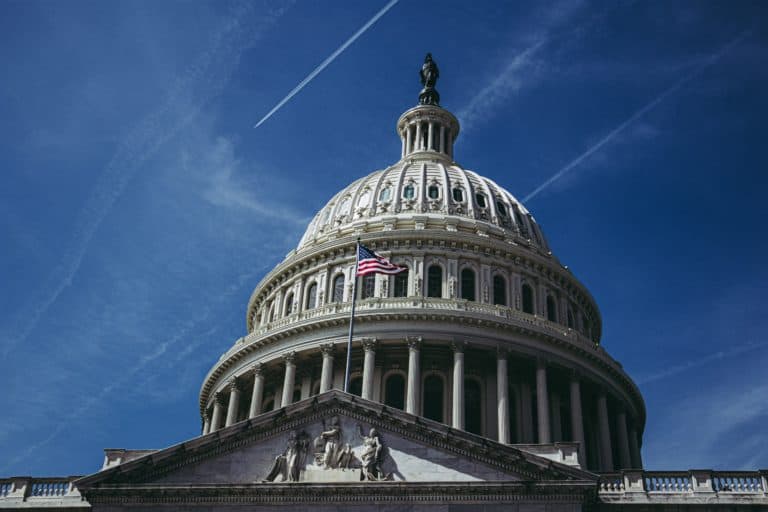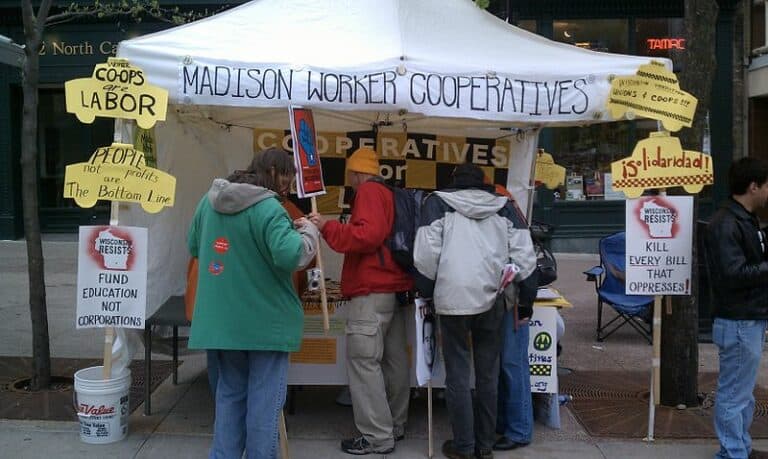
Sharon Block is a Professor of Practice and the Executive Director of the Center for Labor and a Just Economy at Harvard Law School.
The Ninth Circuit issued a decision this week on whether the City of Los Angeles can include in its contracts with companies doing business at LAX a requirement that they enter into labor peace agreements or whether such a contract clause is preempted by the NLRA. Specifically, the city conditions licenses to provide services at the airport on contractors’ agreement to include in their collective bargaining agreements a prohibition on picketing, boycotting, work stoppages or any other economic interference if a union requests such a provision. Of course, unions usually request these provisions – they have great leverage to get favorable terms in exchange because contractors can lose their licenses to do business at LAX if they can’t reach agreement to include such terms.
In Airline Service Providers Association v. City of Los Angeles, the Ninth Circuit affirmed the district court’s dismissal of the contractors’ complaint, finding that the city’s contract clause was not preempted by the National Labor Relations Act, even though it clearly constituted a local government influencing the bargaining process between a private sector actor and the collective bargaining representative of its employees. The court found such influence or interference tolerable by a municipal actor because it determined that the city was acting as a “market participant” not as a “regulator”. The court based its finding on the fact that the city was acting to protect its commercial interest in running an efficient airport in order to compete with private entities providing similar services. In addition, the court found the labor peace agreement requirement to be a narrowly tailored means of protecting that commercial interest, with no evidence that the city was trying to achieve broader policy objectives, such as supporting unions.
The case is unremarkable as precedent – it follows a well worn path in the cases that distinguish between non-federal actors in a market participant or regulator role. It contrasts the narrowness of the impact of the contract provision at issue with statutes that have a broader impact on the collective bargaining relationships covered. For example, it notes that the following procurement-related statutes and ordinances have been struck down as preempted by the NLRA:
- Wisconsin law that prohibited state agencies from doing business with contractors that repeatedly violated the NLRA;
- California law that prohibited state contractors from using state funds to “assist, promote or deter” union organizing; and
- Wisconsin law that in addition to requiring state contractors to adopt labor peace agreements also required them to adopt other measures the court deemed favorable to unions, such as not scheduling work-related meetings that would discourage participation in the union.
At OnLabor, we’ve been drawing attention to questions around the value and impact of the preemptive effect of the NLRA here and here. This case is significant in that it reminds us of how narrowly state and local governments can act, even when using their procurement power, lest they cross the line from market participant to regulator and therefore into preemption.










Daily News & Commentary
Start your day with our roundup of the latest labor developments. See all
July 4
The DOL scraps a Biden-era proposed rule to end subminimum wages for disabled workers; millions will lose access to Medicaid and SNAP due to new proof of work requirements; and states step up in the noncompete policy space.
July 3
California compromises with unions on housing; 11th Circuit rules against transgender teacher; Harvard removes hundreds from grad student union.
July 2
Block, Nanda, and Nayak argue that the NLRA is under attack, harming democracy; the EEOC files a motion to dismiss a lawsuit brought by former EEOC Commissioner Jocelyn Samuels; and SEIU Local 1000 strikes an agreement with the State of California to delay the state's return-to-office executive order for state workers.
July 1
In today’s news and commentary, the Department of Labor proposes to roll back minimum wage and overtime protections for home care workers, a federal judge dismissed a lawsuit by public defenders over a union’s Gaza statements, and Philadelphia’s largest municipal union is on strike for first time in nearly 40 years. On Monday, the U.S. […]
June 30
Antidiscrimination scholars question McDonnell Douglas, George Washington University Hospital bargained in bad faith, and NY regulators defend LPA dispensary law.
June 29
In today’s news and commentary, Trump v. CASA restricts nationwide injunctions, a preliminary injunction continues to stop DOL from shutting down Job Corps, and the minimum wage is set to rise in multiple cities and states. On Friday, the Supreme Court held in Trump v. CASA that universal injunctions “likely exceed the equitable authority that […]